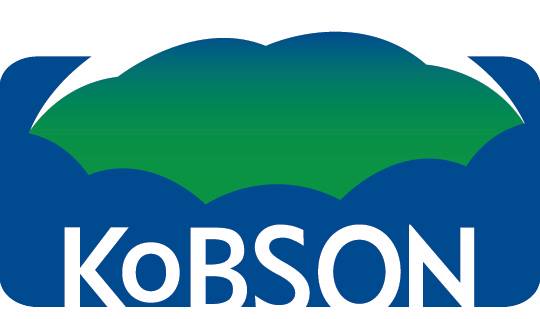DOI: 10.5937/jaes0-30842
This is an open access article distributed under the CC BY 4.0

Volume 19 article 887 pages: 1065-1073
The article's purpose is to develop a methodical approach to improving financial security, which takes into account the acceleration of reproducing processes on Ukraine's device of engineering enterprises. This approach is based on multi-cellular vector optimization. It allows us to determine the optimal values of current assets' manifestations and net profit dynamics and set the optimal correlation between them.
Approbation of a methodical approach to improving financial security and acceleration of reproducing processes on the example of Ukraine's four engineering enterprises was performed. Financial statement data for eight periods were used to build optimization vectors. To improve financial security and accelerate the reproducing processes of Ukraine's engineering enterprises, certain volumes of working assets, periods of their turnover, their marginal value taking into account different financing sources, and maximum net profit at certain manifestations of the dynamics of current assets are established. In implementing the methodical approach to improving financial security and accelerating the reproducing processes in engineering enterprises' practical activities, highly qualified personnel occupy a significant role and place. The powerful toolkit of their provision is material stimulation (an increase of wages, provision of premiums) and establishment of relations in the team (social justice in the department); the opportunity to advance on the career ladder; respect for employees by management; frank and friendly relationships at all levels of management; participation in corporate holidays of all employees. Therefore, the study's further direction is developing a methodical approach to improving the financial security of engineering enterprises, taking into account personnel support.
This work was supported by the Ministry of Education and Science of Ukraine (Project No. 0117U003922 «Innovative drivers of national economic security: structural modeling and forecasting»).
1. Zakharkin, O., Basantsov, I., Myroshnychenko, Iu. & Shcherbachenko, V. (2019). Analysis of the innovative development directions for industrial enterprises, Espacios, 40 (27), 16-25. Retrieved from http://www.revistaespacios.com/a19v40n27/a19v40n27p16.pdf
2. Statistical information. State Service Statistics: Official Web Resource. Retrieved from http://www.ukrstat.gov.ua (appeal date 23.04.2020).
3. Prokopenko, O.V., Domashenko, M.D., & Shkola, V.Y. (2014). Management features of economic security in foreign economic activity of ukrainian engineering enterprises. Actual Problems of Economics, 160(1), 188-194.
4. Shpak, N., Kyrylych, T., & Greblikaite, J. (2016). Diversification Models of Sales Activity for Steady Development of an Enterprise. Sustainability, 8 (4). DOI: 10.3390/su8040393.
5. Dźwigoł, H., Shcherbak, S., Semikina, M., Vinichenko, O., & Vasiuta, V. (2019). Formation of Strategic Change Management System at an Enterprise. Academy of Strategic Management Journal, 18(SI1), 1-8. Retrieved from https://www.abacademies.org/articles/Formation-of-strategic-change-management-system-at-enterprise-1939-6104-18-SI-1-454.pdf
6. Vytvytska, O.D., Martynyuk, O.A., Shpak, N.O., Karcheva, G.T., Medynsky, I.P., & Nodzhak, L.S. (2020). Modern Structural-functional modeling for the determination of the company’s equilibrium conditions in the dynamic business environment. Mathematical Modeling and Computing, 7 (1), 104-111. DOI: 10.23939/mmc2020.01.104.
7. Binda, J., Prokopenko, M., Ramskyi, A., Shuplat, O., Halan, L., & Mykhaylenko, D. (2020). Assessment of investment attractiveness of industrial enterprises. International Journal of Management, 11(2), 27-35. http://iaeme.com/MasterAdmin/Journal_uploads/IJM/VOLUME_11_ISSUE_2/IJM_11_02_004.pdf
8. Ponomarenko, T.V., Prokopenko, O.V., Slatvinskyi, M.A., Biloshkurska, N.V., Biloshkurskyi, M.V., & Omelyanenko, V.A. (2019). National Investment and Innovation Security Assessment Methodology. International Journal of Mechanical Engineering and Technology, 10 (2), pp. 847-857.
9. Gorovy, D.A. (2015). Financial instruments to minimize risks in the management of working capital. Problems and prospects of entrepreneurship development, 3 (1), 148-154. [in Ukrainian]
10. Getsov, P., Bo, W., Mardirossian, G. Nedkov, R., Stoyanov, S., Prokopenko, O., Boyanov, P. (2017). Equipment for evaluation of the characteristics of electronic-optic converters. Comptes Rendus de L'Academie Bulgare des Sciences, 70(11), pp. 1575-1578.
11. Morar, G.C. (2016). Factors influencing insolvency at the level of companies. Management Intercultural, 18 (2), 135-142.
12. Shmygol, N. (2014). Retrospective analysis of the united states experience in taxation, financial support to enterprises and its application for the formation of strategic objectives. Bulletin of Zaporizhia National University. Economic sciences, 1, 135-143.
13. Timchev, M. (2016). Accounting and balanced business analysis of the insolvency (bankruptcy) risk and of the company competitiveness in time of global economic crisis. Institute of Accounting, Control & Analysis in the Globalization Circumstances, 2, 116-124.
14. Kwilinski, A., Dzwigol, H., & Dementyev, V. (2020). Model of Entrepreneurship Financial Activity of the Transnational Company Based on Intellectual Technology. International Journal of Entrepreneurship, 24 (Special Issue: Entrepreneurship, Innovation Management and Sustainability), 1-5. Retrieved from https://www.abacademies.org/articles/Model-of-Entrepreneurship-Financial-Activity-of-the-Transnational-Company-Based-on-Intellectual-Technology.pdf
15. Miśkiewicz, R, & Wolniak, R. (2020). Practical Application of the Industry 4.0 Concept in a Steel Company. Sustainability, 12(14), 5776. https://doi.org/10.3390/su12145776
16. Zakharkin, O., Basantsov, I., Shcherbachenko, V., & Zakharkina, L. (2019). Public-private partnership as an effective tool in R&D activity. Proceedings of the 33rd International Business Information Management Association Conference, IBIMA 2019: Education Excellence and Innovation Management through Vision 2020, 6674-6678.
17. Financial statements of PJSC Kharkiv Engineering Plant “Svitlo Shakhtarya”: official Web-resource. Retrieved from http://www.shaht.kharkov.ua/files/index_1.html. (appeal date 08/15/2019)
18. Financial statements of PJSC "Kharkiv Engineering Plant" PLINFA ": official Web-resource. Retrieved from http://plinfa.com/ua/. (appeal date 08/25/2019)
19. Financial statements of PJSC "Kupyansk Engineering Plant": official Web-resource. Retrieved from https://ring.org.ua/edr/uk/company/00372307 (appeal date 09/17/2019)
20. Financial statements of PJSC "Drohobych Engineering Plant": official Web-resource. Retrieved from https://drohobych-rada.gov.ua (appeal date 10/23/2019)
21. Dugan Michael T., Medcalfe Simon K., & Park Sang Hyun. (2018). A reconsideration of operating-financial leverage tradeoff hypothesis. Journal of financial economic policy. Vol. 10, No. 4. 473-483.
22. Moskalenko, N., Romanenko, O., & Oliinyk, T. (2015). Approaches to enterprises’ financial and economic security management. Economic journal -XXI, 7-8 (1), 54-57.
23. Dyachenko, V.V. (2018).Pro Financial competitiveness as a component of financial security of the enterprise. Young scientist. № 11 (2), 1120-1123. [in Ukrainian]
24. Mayboroda, A.V. (2018). Financial security of the enterprise: theoretical features of its system and place in the structure of economic security. Bulletin of the University of Banking, 3, 58-65. [in Ukrainian]
25. Marina, A.S., Yelanskaya, N.O., & Petrenko M.A. (2019). Financial rehabilitation in the system of financial and economic security of the enterprise. Business navigator, 2, 118-122. [in Ukrainian]
26. Melnyk, S.I. (2019). Financial security of the enterprise: the essence and modern problems of security. Problems of system approach in economy, 1 (2), 7-12. [in Ukrainian]
27. Mohamad, H., & Evangelos, G. (2019). Financial institutions mergers: a strategy choice of wealth maximisation and economic value. Journal of financial economic policy. Vol.: ahead-of-print, No. ahead-of-print. Retrieved from: 10.1108/JFEP-06-2019-0113.
28. Zhuravlyova I. V., & Lelyuk S. V. (2014). Management of enterprise financial security and its intellectual component based on creating multiagent decision support system. Actual Problems of Economics, 7, 163-170.







